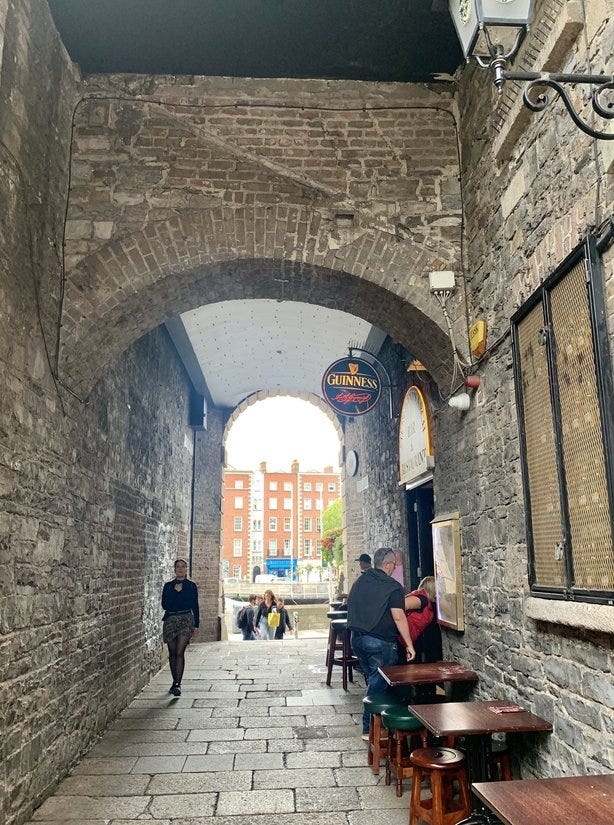Dublin's Cultural Collapse
Can you talk about the capital's problems without discussing long term cultural and demographic change?
There’s been a spate of articles over the last two weeks about the collapse of cultural life in Dublin - these were prompted by a string of unfortunate recent developments, namely the closure of the city’s largest independent bookshop, and of Trinity College’s Science Gallery; the proposed destruction of two cultural landmarks to make way for hotels; and the eviction of squatters from a site in Stoneybatter in the midst of a housing crisis.
Not mentioned in these articles, but adding to the feeling of a city that is being hollowed out, were the recent deaths of musician Paddy Moloney and poet Brendan Kennelly.
There are a couple of things to say about the commentary on this.
The first is that journalists, commentators and activists have been among the most enthusiastic supporters of Covid restrictions in the city. They have been the most anxious to shut down any critique of restrictions as emanations from the far right, and have continuously amplified Zero Covid nutjobs. So it’s all a bit Eric Andre of them to blow Dublin’s commercial and cultural brains out with a gun marked lockdown, and then turn to the camera and ask who did this.
The second is that Dublin’s problem is a subset of a larger Irish one, namely that the things that have defined us in the past (Catholicism, a type of cultural nationalism) are dead or dying and we have nothing equivalent to replace them with.
This is normally seen as a good thing by the people currently lamenting Dublin’s decline, for whom our historic identity is an embarrassing anti-modern burden that we are trying to escape. But as with most other countries, the dissolution of an old identity doesn’t mean that we move seamlessly into an equally resonant and unique new one. It just means that we are swallowed up by the default habits of our era, i.e. shopping, extravagant self-expression, legal sanctification of aggrieved micro-identities and patting ourselves on the back for not being old-fashioned. (What I previously defined as Metastasized Liberalism.)
Our historic culture for it’s real and terrible faults was something more than purely materialist, and something that belonged to us alone. Those gaps can’t be plugged by any remedy proposed in the media, or by anyone coming at this from a functional perspective alone.
The third is issue is that one of the biggest drivers of cultural and practical change in the city, and the country, is immigration. It’s not true to say we never talk about demographic change in Ireland, but a critical conversation about the benefits and drawbacks is definitely absent from media and politics.
It’s not a coincidence that one of the people complaining loudest about the current level of change in the city previously headed a campaign to pre-emptively colour public discussion of immigration as racist. That sums up the the disingenuousness of the conversation.
It’s essential to address house prices, planning laws, transport infrastructure and so on within Dublin - that’s the general prescription within these articles and all those things would help manage the difficulty of life in the city. But during my short lifetime the institution that was the moral and spiritual centre of Irish life has evaporated to be replaced by nothing, and we have begun the most sudden and extreme demographic change since the plantations. The idea that we can manage change in Dublin (or Ireland) without critically considering the role of either of these things seems fairly insane.





Very powerful piece, Conor. It's the second point that rings loudest to me, as an American. The Irish had their Church and their nationalism. For all their faults, they provided a source of spiritual nourishment and cultural inspiration. If you give that up in the name of 21st century modernity, you are left with the empty values of tech sectors, consumerism and celebrity culture.
A cultural rot is what results, and nobody in the West can find a suitable replacement.
You'll know the end is nigh when the snakes appear.